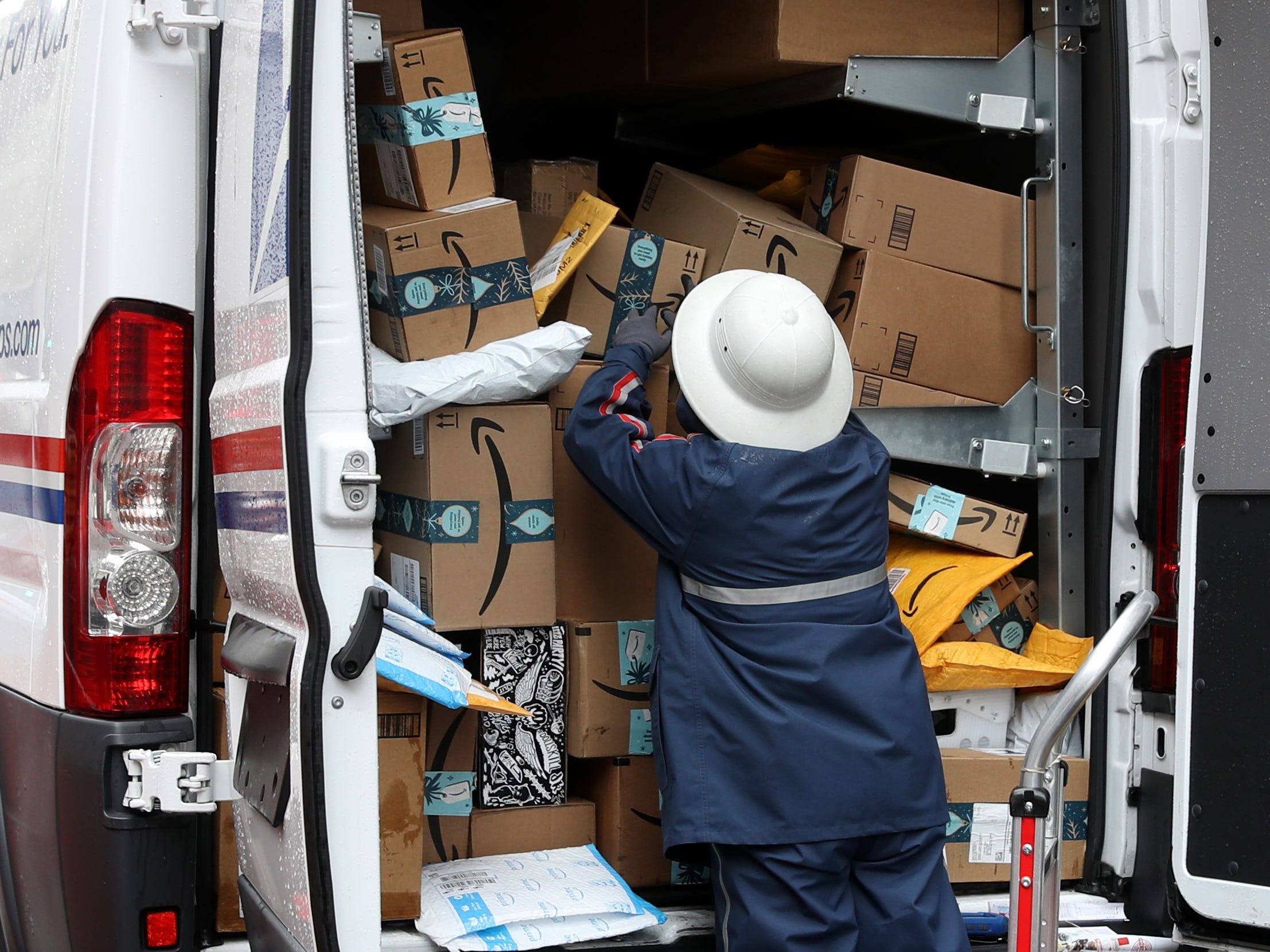
Justin Sullivan/Getty Images
- Last-minute holiday shopping may be more difficult than ever before this year due to shipping delays, low inventory, and fewer last-minute deals than in previous years.
- Shipping companies told The Wall Street Journal that they are already at capacity ahead of the holidays, a trend that industry experts are referring to as “shipageddon.”
- Beyond shipping woes, customers may have trouble finding the gifts they want, as retailers are scaling back on inventory to avoid ending up with a surplus after the holidays are over. This could also result in fewer last-minute deals.
- Additionally, retailers are unlikely to offer enticing in-store sales to avoid customers arriving in droves.
- Visit Business Insider’s homepage for more stories.
For last-minute holiday shoppers, this year’s shopping season may post unprecedented challenges.
With another month to go before holiday shopping is in full swing, experts are warning that customers may face a string of obstacles, from shipping delays to inventory issues to fewer last-minute deals than previous years. The issues are a direct result of the coronavirus pandemic, which has stretched the retail and shipping industries to a breaking point throughout the last eight months.
According to a new report from The Wall Street Journal’s Paul Ziobro, major shipping companies like FedEx and UPS are advising retailers that they are nearly or entirely out of capacity in advance of the holiday shopping season. The United States Postal Service has already been stretched thin during the pandemic and is likely facing an onslaught of mail-in ballots ahead of Election Day. Smaller firms, like DHL and LaserShip, told the Journal that their shipping capacity is already booked and that they won’t be taking on new customers until after the holidays.
This could result in shipping delays for customers hoping to get their packages in time for the holidays, which industry experts are referring to as “shipageddon.”
“Consumers should be prepared for deliveries to take extra days no matter which carrier is delivering their parcels,” Satish Jindel, president of ShipMatrix, a software company that tracks shipping data, told the Journal.
Jindel told the Journal that ShipMatrix estimates that 86.3 million packages will be looking for space between Thanksgiving and Christmas, but that the shipping industry's total capacity will be 79.1 million parcels per day. That means there will be an excess of about 7 million packages per day that the industry doesn't have the capacity to ship.
Beyond shipping woes, however, customers may have trouble finding the items they want in the first place.
According to Jason Goldberg, the chief commerce strategy officer at advertising firm Publicis who runs the site Retail Geek, retailers have scaled back on inventory to avoid ending up with a surplus after the holidays are over. For customers, this could mean that the gifts they were hoping to buy may be in short supply, Goldberg wrote in Forbes.
Less inventory could also mean fewer deals for shoppers, as retailers are unlikely to offer last-minute discounts before Christmas if they're already running low on supply, Goldberg wrote. On top of that, most companies are likely to do away with enticing in-store deals or sales in order to avoid hordes of customers showing up in person — the Centers for Disease Control and Prevention has classified shopping in crowded stores before or on Thanksgiving or on Black Friday as a high-risk activity when it comes to spreading the coronavirus.
The forecast for this year's holiday shopping season reflects the long-lasting impact of the pandemic. Shipping and retail industries have been under immense strain since March, when stores shut down and customers began shopping online in droves. As the holidays draw nearer, and issues like shipping capacity and low inventory don't seem to be going away, it's safe to say this year's holiday shopping season will likely look very different from years' past.

